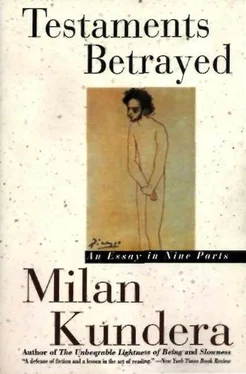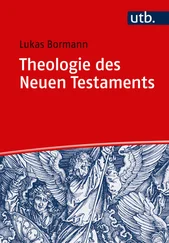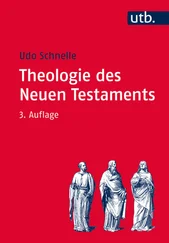Kafka sent the manuscript of "The Metamorphosis" to a magazine whose editor, Robert Musil, was prepared to publish it on the condition that the author shorten it. (Ah, sorry encounters between great writers!) Kafka's reaction was as glacial and as categoric as Stravinsky's to Ansermet. He could bear the idea of not being published at all, but the idea of being published and mutilated he found unbearable. His concept of authorship was as absolute as Stravinsky's or Beckett's, but whereas they more or less succeeded in imposing theirs, he failed to do so. This failure is a turning point in the history of authors' rights.
In 1925, when Brod published the two letters known as Kafka's testament in his "Postscript to the First Edition" of The Trial, he explained that Kafka
knew full well that his wishes would not be fulfilled. Let us assume that Brod was telling the truth, that those two letters were indeed only expressing a bad mood, and that on the subject of any eventual (very improbable) posthumous publication of Kafka's writings, everything had been fully understood between the two friends; in that case, Brod, the executor, could take full responsibility upon himself and publish whatever he thought best; in that case, he had no moral obligation to inform us of Kafka's wishes, which, according to Brod, were not valid or were so no longer.
Yet he hastened to publish these "testamentary" letters and to give them as much impact as possible; actually, he had already begun to create the greatest work of his life, his myth of Kafka, one of whose crucial components is precisely that wish, unique in all of history-the wish of an author who would annihilate all his work. And thus is Kafka engraved on the public's memory. In accordance with what Brod gives us to believe in his mythographic novel, where, with no nuance whatever, Garta/Kafka would destroy everything he has written; because he is dissatisfied with it artistically? ah no, Brod's Kafka is a religious thinker; remember: wanting not to proclaim but "to live his faith," Garta granted no great importance to his writings, "mere rungs to help him climb to the heights." His friend, Nowy/Brod, refuses to obey him because even though what Garta wrote was "mere sketches," they could help "wandering humanity" in its quest for the path of righteousness to "something irreplaceable."
With Kafka's "testament," the great legend of Saint Kafka/Garta is born, and along with it a littler legend-of Brod his prophet, who with touching earnest-
ness makes public his friends last wish even as he confesses why, in the name of very lofty principles, he decided not to obey him. The great mythographer won his bet. His act was elevated to the rank of a great gesture worthy of emulation. For who could doubt Brod's loyalty to his friend? And who would dare doubt the value of every sentence, every word, every single syllable Kafka left to humanity?
And thus did Brod create the model for disobedience to dead friends; a judicial precedent for those who would circumvent an authors last wish or divulge his most intimate secrets.
With regard to the unfinished stories and novels, I readily concede that they would put any executor in a very uncomfortable situation. For among these writings of varying significance are the three novels; and Kafka wrote nothing greater than these. Yet it is not at all abnormal that because they were unfinished he ranked them among his failures; an author has trouble believing that the value of a work he has not seen through to the end might already be almost fully discernible, before it is done. But what an author is incapable of seeing may be clear to the eyes of an outsider. Yes, because of these three novels I admire boundlessly, I would not have found the strength to carry out fully Kafka's "testament."
Who could have confirmed me in that position?
Our greatest Master. Let's open Don Quixote, Part One, Chapters Twelve, Thirteen, Fourteen: Don Quixote
and Sancho are in the mountains, where they learn the story of Grisostomo, a young poet in love with a shepherdess. To be near her, he himself becomes a shepherd; but she doesn't love him, and Grisostomo ends his life. Don Quixote decides to attend the burial. Ambrosio, a friend of the poet, conducts the modest ceremony. Beside the flower-covered body there are notebooks and sheets of poems. Ambrosio tells the gathering that Grisostomo requested that they be burned.
At that moment a gentleman who has joined the mourners out of curiosity, Senor Vivaldo, intervenes: he disputes the idea that burning the poetry truly answers to the dead man's wish, for a wish must make sense and this one does not. It would therefore be better to give his poetry to other people, that it might bring them pleasure, wisdom, experience. And without waiting for Ambrosios response, he bends down and takes a few of the pages nearest to him. Ambrosio says to him: "Out of courtesy, sir, I will permit you to keep those that you have taken; but it is futile to think that I will refrain from burning the rest."
"Out of courtesy, I will permit you"; meaning that even though a dead friends wish has for me the force of law, I am not a lackey to the laws, I respect them as a free being who is not blind to other values, values that may stand opposed to the law, such as, for instance, courtesy or the love of art. That is why "I will permit you to keep those that you have taken," while hoping that my friend will forgive me. Still, in making this exception I have violated his wish, which for me is law; I have done so on my own responsibility, at my own risk, and I've done so as a violation of a law, not
as a denial and nullification of it; that is why "it is futile to think that I will refrain from burning the rest.
A television broadcast: three famous and admired women collectively propose that women too should have the right to be buried in the Pantheon. It's important, they say, to consider the symbolic significance of this act. And they immediately suggest the names of some great dead women who, in their opinion, could be moved there.
A fair demand, certainly; yet something about it troubles me: these dead women who could be moved right over to the Pantheon, aren't they now lying beside their husbands? Certainly; and they wanted it so. What then are we to do with the husbands? Move them too? That would be hard; not being important enough, they must stay where they are, and the wives that have been moved out will spend their eternity in widows' solitude.
Then I say to myself: and what about the men already in the Pantheon? Yes, the men! Are they perchance in the Pantheon of their own will? It was after they died, without asking their opinion, and certainly contrary to their last wishes, that it was decided to turn them into symbols and separate them from their wives.
After Chopin's death, Polish patriots cut up his body to take out his heart. They nationalized this poor muscle and buried it in Poland.
A dead person is treated either as trash or as a symbol. Either way, it's the same disrespect to his vanished individuality.
Ah, it's so easy to disobey a dead person. If, nonetheless, we sometimes submit to his wishes, it is not out of fear, out of duress, but because we love him and refuse to believe him dead. If an old peasant on his deathbed begs his son not to cut down the old pear tree outside the window, the pear tree will not be cut down for as long as the son remembers his father with love.
This has little to do with any religious belief in the eternal life of the soul. It's simply that a dead person I love will never be dead for me. I can't even say: "I loved him"; no, its: "I love him." And my refusing to speak of my love for him in the past tense means that the dead person is. That may be the seat of man's religious dimension. Indeed, obedience to a last wish is mysterious: it goes bevond all practical and rational thought: the old peasant will never know, in his grave, if the pear tree has been cut down or not; yet for the son who loves him, it is impossible to not obey him.
Читать дальше












